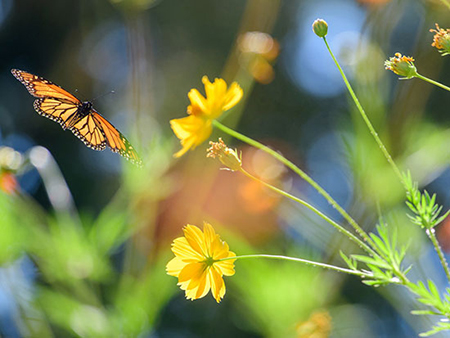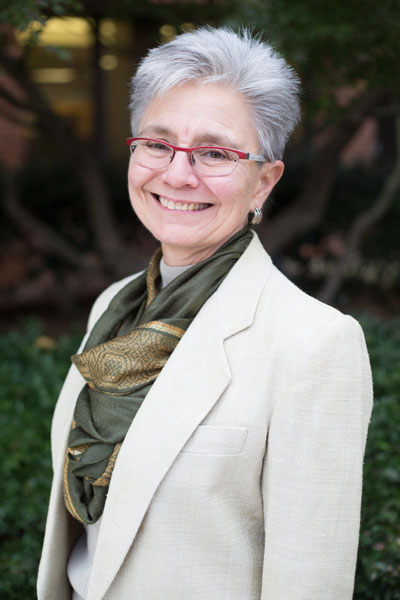Media contact: Alicia Rohan
Editor's Note: The information published in this story is accurate at the time of publication. Always refer to uab.edu/uabunited for UAB's current guidelines and recommendations relating to COVID-19.
Editor's Note: The information published in this story is accurate at the time of publication. Always refer to uab.edu/uabunited for UAB's current guidelines and recommendations relating to COVID-19.
 She was a woman who always had a plan. Until, suddenly, everything changed. Diane Tucker, Ph.D., is a professor in the Department of Psychology, a scientist or senior scientist in a host of UAB centers, from the O’Neal Comprehensive Cancer Center to the Center for the Study of Community Health, and founding director of the Science and Technology Honors Program, one of the specialized programs in the UAB Honors College.
She was a woman who always had a plan. Until, suddenly, everything changed. Diane Tucker, Ph.D., is a professor in the Department of Psychology, a scientist or senior scientist in a host of UAB centers, from the O’Neal Comprehensive Cancer Center to the Center for the Study of Community Health, and founding director of the Science and Technology Honors Program, one of the specialized programs in the UAB Honors College.
Now she is away from the students and colleagues who make up her professional life. Like the majority of UAB’s workforce, Tucker is spending the next weeks working from her home, enveloped in a cloud of uncertainty. “We don’t know what’s going to happen in two weeks,” Tucker said. “Those of us who teach may not see our students in person again this semester. But I can’t change that. I however ask, ‘What are the next steps that I can take that I do have control over?’”
The very definition of stress “is unpredictability and uncertainty, and that defines our current situation,” said Tucker, who also serves as a psychologist with the outpatient Supportive Care team at UAB Hospital. “The parameters we use to organize our daily lives have been completely turned upside down. We respond to that by being stressed. That’s not something unusual. It’s natural.”
All of us, around the university and around the world, are in the same situation. This week, Tucker sat down at her computer and wrote some advice for her students, who have been advised to stay away from campus for at least the next few weeks. “We are all planners,” she began. “Planning is how we balance commitments to multiple classes (each of which is certain it is the most important class you will ever take), research, organizations, friends, family, and… Now, in a matter of a few days, much of how the immediate future will
| Get the latest COVID-19 information at uab.edu/coronavirus. |
unfold is unclear. You have far less ‘control’ of the immediate future.”
But there are ways to take back that control, Tucker said. “Consider narratives other than, ‘This is terrible,’” she told her students. How? Here are four things you can do.
1) Be present in this time
“It’s incredibly powerful to close your eyes and take three to five slow, deep breaths — then open your eyes and see what’s around you,” Tucker said. “It’s centering just to take a moment to hear the birds singing or look at the flowers blooming, when you are out walking in your neighborhood.”
Tucker has practiced the principles of mindfulness for years. “There is lots of training that can go into mindfulness, but in some ways the essence is quite simple,” she said. “It’s pushing the pause button on the worrying we do about the future and the past and instead working to be fully present in the moment. It’s focusing on what you can experience and cope with that’s immediately in front of you. I think it’s very relevant to times like this.”
 Diane Tucker, Ph.D.2) Make a plan
Diane Tucker, Ph.D.2) Make a plan
You may not feel like a planner. But all of us “are accustomed to having times we are supposed to be at work, go to meetings, attend classes or meet other commitments. Now that has all been turned upside down.” Tucker said. “It is up to us to figure out how we are going to organize our days. Everything is up for grabs. We need to create the structure for ourselves that we have lost, even if we start just by planning what’s for dinner. We all have the capacity for that.”
What Tucker is going to do “is make a list of the big things I need to get accomplished in the next six weeks,” she said. "Then I will work backwards, week by week, until I get to this week. Then I will plan what I am going to do today and tomorrow.
“I’ll end up with a set of goals so I feel like I have a plan, and if I fulfill these things then I will know I’m on track.”
3) What will you do with this opportunity?
“We all have things that we have put off because we ‘just don’t have the time,’” Tucker said. “Now we have the time. That is a tremendous opportunity if you choose to look at it that way. Maybe it’s trying a new recipe. Exercising. Writing a letter to a friend. Starting a new project. Make a thoughtful, conscious decision about what that will be.”
4) What will we remember?
“Keeping a journal is a really useful practice” and aid to mindfulness, Tucker said. Especially now. “This is a historic time; there hasn’t been anything like this since the 1918 flu,” she said. “It’s the kind of thing we’ll tell our grandchildren about. Keep a journal of what you are observing and how you are responding. It’s a good investment and a great way to practice being attentive to the present.”